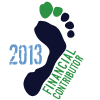I wonder if part of the confusion in this thread is that distance runners do depend a great deal on fat metabolism. However, intramuscular glycogen is still a superior source of energy in terms of accessibility, and that's what I'm trying to maximize. I still have a fair amount of fat, so no need to maximize that.
I thought that this was a nice article that talked about energy systems and specific sports.
Energy Systems in Sport & Exercise
Table 2 in this chapter excerpt shows the different types of of muscle fibers and energy systems used, depending on the athlete. I suppose that one can't have it all.
Physiological Basis Of Exercise
I thought that this was a nice article that talked about energy systems and specific sports.
Energy Systems in Sport & Exercise
Table 2 in this chapter excerpt shows the different types of of muscle fibers and energy systems used, depending on the athlete. I suppose that one can't have it all.
Physiological Basis Of Exercise






























